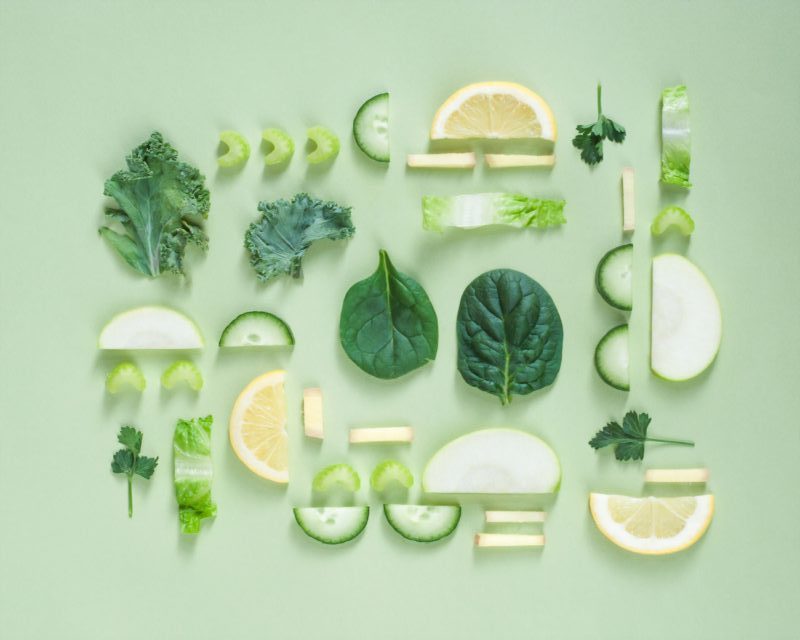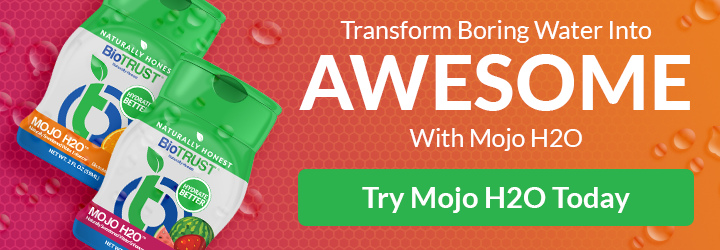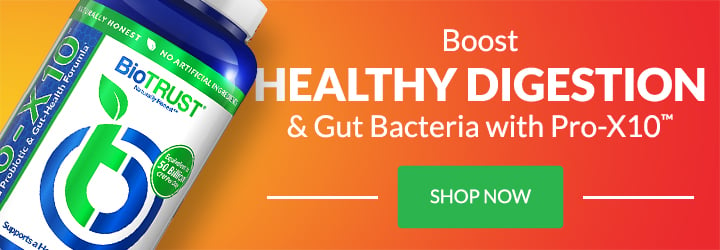How to Detox Your Body Safely and Effectively (9 Easy Ways)

Tis the season for the “new year, new you.” And the elixir marketers are flooding the wires (traditional as well as online) with the latest information on how to detox the body—from coffee enemas to colonics to oxygen detoxes to ionic foot baths to detox teas and more. With all of this information flooding our feeds, many of us are asking how to detox safely to rid our bodies of toxins and help jumpstart health and weight-loss goals for the new year.
It’s worth noting that there are incentives to promote these types of detox supplements. The detox market is currently estimated to be worth over $51 billion and is projected to grow to $75 billion by 2026. This market has been increasing in large part due to the growing awareness of the adverse effects of alcohol use and cigarette smoking. No wonder the claims of rapid results are so rampant, especially at this time of year.
If these advertisements have done their job and you’re convinced you need to detox, you’re certainly not alone. But please keep reading before you start consuming a special drink or tea, pill, powder, or laxative elixir to rid your body of excess weight, water, germs, or even parasites.
How to Detox Safely
The body already has an amazing built-in detoxification system that’s always operating at a cellular level. One expert explains it this way: the body is like a bucket that is regularly filled with toxins from everyday life. Fortunately, at the bottom of the bucket is a large hole where the toxins drain out as they come in. There are several ways the toxins are removed from the bucket (e.g., the lymphatic system, liver, digestive system, and skin). As long as the bucket (body) doesn’t fill up faster than it can drain, it will continue to detox so the toxins don’t build up.
And, by treating your body well (e.g., drinking water, eating mostly whole foods, limiting toxins, and exercising regularly), you can better support its ability to detox naturally. No special detox treatments necessary.
But a lot of us don’t always treat our bodies as well as we know we should, especially over the holidays. So, what if you have overindulged in sugars, refined fats, alcohol, or other additives? Or if you’ve been exposed to toxins like heavy metals, contaminated water, cigarette smoke, or polluted air?
If you have been exposed to toxic metals, such as mercury poisoning, your healthcare practitioner can work with you on a specific form of detoxification known as chelation therapy. In addition, if you have liver or kidney damage or are suffering from a disease, you may need additional help to clear toxins with guidance from your medical team.
If, on the other hand, you are in fairly good health and are just dealing with day-to-day toxins, your body is well equipped to remove those toxins naturally through the kidneys, liver, digestive system, respiratory system, and skin. The body naturally seeks balance or homeostasis, which includes neutralizing, processing, and eliminating toxins.
Dangers of “Detoxes”
Some detox regimens have been proven to cause more harm than health. For instance, when consumed in excess, some common ingredients found in teas and juices can lead to an electrolyte imbalance or even stress the kidneys. In addition, harsher detoxes may promote the use of laxatives, which can cause dehydration, diarrhea, and other issues.
Even just changing the diet could lead to a lack of essential nutrients, especially if calories and types of foods are severely restricted. This can be especially dangerous for people who are already suffering from a health condition, such as type 2 diabetes or pre-diabetes.
While many companies claim their products, cleanse, or detox promote rapid weight loss, this is typically because calories have been restricted so severely. That restriction can also leave you feeling exhausted, weak, lightheaded, nauseous, and irritable. (That’s no fun!) And many detox programs are very expensive as in addition to any supplements suggested, you’re required to fill your fridge with very specific, often costly foods.
And because these types of detox diets or cleanses are temporary, so are the effects. Yes, you might lose a few pounds fast. However, that weight is typically just water. And because these types of diets aren’t designed for sustainability, you’ll put the weight back on just as quickly when you return to your usual eating habits.
Another growing concern with people who repeatedly try detoxing or cleansing diets is developing unhealthy or disordered eating patterns. For instance, especially in the health and wellness space, some people become fixated on their body image, their natural lifestyle, and how it defines them. It becomes part of their identity.
Counterintuitively, this focus on health can develop into an unhealthy relationship with foods. For instance, people may feel stressed, find they’re unable to eat with others or in social situations, or severely restrict food options. This condition, known as orthorexia, can even lead to nutrient deficiencies or develop into anorexia nervosa, all in the pursuit of “healthy” living.
Remember, a healthy relationship with food is all about balance. Yes, eating more healthy whole foods, such as quality proteins, healthy fats, and a rainbow of vegetables and fruits is important. But there are other reasons to eat, and you don’t need to be perfect to reach your health, fitness, or weight-loss goals.
Does Anyone Need to Detox?
Unless your experience is extraordinary, you likely don’t need to do anything special to detox the body. If, on the other hand, you are experiencing distressing disturbances or if you have faced extreme levels of exposure to toxins (e.g., molds, heavy metals, chemicals in the workplace), then it may help to clear the body of these toxins. A visit to your doctor—especially one trained in functional medicine, integrative medicine, and nutrition—may help design a safe, effective protocol for you and your condition.
While there’s a lack of evidence for the effectiveness for detox claims around enemas, colonics, ionic foot baths, and the abundance of detox supplements on the market, they can be intriguing for those who may not have been taking the best care of their bodies.
That said, for folks in that position or others who may have found themselves overindulging recently, there are ways to better support the natural detoxification processes within your body.
9 Safe Ways to Detox
Especially after overindulging, there are proven ways to help support your body’s detox systems, such as:
1. Limit Alcohol Consumption
Alcohol is toxic to the body, causing your liver to kick into high gear to process and remove it. This is why excessive drinking over time can damage the liver and reduce its ability to detox. Give your body and liver a break by decreasing or even eliminating alcohol consumption for a few days, weeks, or a full month. And when you do drink, make sure it’s in moderation.
2. Consuming Whole Foods
Consuming increasing amounts of ultra-processed foods—filled with refined fats and carbs, preservatives, and additives—has been directly linked to diseases like cardiovascular disease, obesity, type 2 diabetes, cancer, and more. All of which can lead to early death. Fortunately, eating a nutrient-dense diet made up mainly of quality proteins, vegetables, fruits, healthy fats, and high-fiber grains can have the opposite effect. Just remember to avoid seafood contaminated with mercury and always wash your vegetables and fruits to remove chemical contaminants. And eat a wide variety of foods (especially colorful vegetables) to ensure you’re getting the vitamins, minerals, and phytonutrients your body needs.
3. Staying Hydrated
The body uses water to flush away waste products, including toxins. Plus, staying hydrated helps regulate body temperature, lubricate joints, and aid digestion.
4. Getting Your Sweat On
Exercising regularly has countless benefits, including helping the body flush out toxins as well as supporting the body’s detox systems, including digestion. Regular exercise also keeps the lymphatic system moving.
5. Enjoying Your ZZZs
Another extremely important activity that too many of us neglect is getting enough sleep. Shoot for between seven and nine hours every night to maintain optimal health and give your body time to rest and recover. Sleep is necessary for the brain and central nervous system to get rid of toxins as well as reorganize and recharge.
6. Maintaining a Consistent Sleep-Wake Cycle
This allows organs to function optimally as they prefer a regular routine. So, decide on when to go to bed and when to wake up, and stick to the plan as much as possible.
7. Supporting Gut Health
Gut health is vital for detoxification. Ensuring you get enough good fiber and prebiotics helps feed the good bacteria to move wastes and toxins out of the system. You may also want to include probiotics in your diet, either through supplementation or probiotic foods like yogurt, kefir, sauerkraut, and kimchi.
8. Reducing the Toxic Load
You don’t have to get rid of what you don’t accumulate in the first place. So, it can be helpful to put fewer toxins in the “bucket” by, for example, removing toxic chemicals from your home.
- Use natural cleaning products (e.g., vinegar and baking soda), and stop using products that contain volatile organic compounds
- Avoid the use of chemicals like herbicides and pesticides on your lawn, or at least limit them
- Avoid consuming products (and especially heating foods) out of plastic containers which can contain chemicals like BPA, BPS, or DEHP
- Check personal care products like perfumes, nail polish, and even food containers for chemical phthalates and formaldehyde
- Limit the consumption of foods that may contain mercury, such as certain types of fish and seafood
- Skip the polytetrafluorethylene found on non-stick cookware
- Avoid obvious toxins, such as cigarette smoke, chemical fumes, or smoggy air when possible.
9. Consume Nutrients that Support the Body’s Natural Detoxification Process
In addition to eating healthy, nutrient-dense whole foods, some foods may provide an additional edge to help support the body’s detox system. These include sulfur-containing foods like onions, broccoli, garlic, and eggs, which support the function of the powerful antioxidant glutathione.
Other “detoxifying” foods include chlorella, cilantro, turmeric, ginger, and other herbs and spices. There’s also some indication that consuming organic foods when possible can help lessen the load. At the very least, avoid consuming foods on the Dirty Dozen list, which have the highest levels of pesticides.
How to Detox Safely: A Recap
If you have a severe issue, avoid an over-the-counter detox products that could make things worse. Instead, get in touch with your healthcare practitioner, preferably one who’s familiar with nutrition and functional medicine.
Otherwise, let your body do its thing. Give it the rest, nutrition, and exercise it needs to detox naturally. And understand that it takes time to recover, even when making the best choices. Finally, skip the miracle cures that promise total body cleansing, rapid weight loss, and emotional bliss that will likely lighten only your wallet.









